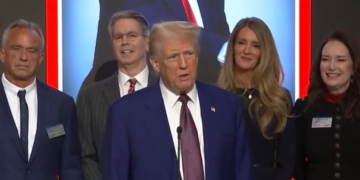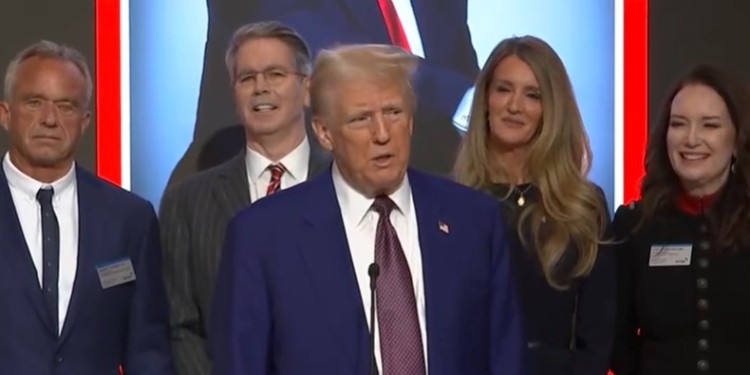Related to his evolving posture and policies related to tariffs, what most tend to forget — or in many cases, simply ignore — about Donald Trump is that he is by his very nature a dealmaker. Using tools of leverage to negotiate deals is in his bones, and as President of the United States, he possesses more and stronger tools of leverage than any other human on the planet.
Trump’s political adversaries and U.S. trading partners ignore his basic negotiation strategy, which he has laid out in multiple books. That strategy involves staking out an unreasonable position that is far beyond the actual end result he wants to achieve to force his negotiating counterparty to move in his direction, and to modify his positioning until he reaches his desired outcome.
Thus, a 25% tariff invoked on imports of, for example, steel might become a 10% tariff a month later and be gone entirely a few weeks after that, depending on the response of the counter party. At the end of the day, the net impact on the economy and individual companies would amount mainly to a temporary loss of certainty in their ability to plan their business, but not a lot else.
But even when Trump’s tariffs remain firmly in place, overall market dynamics and competition tend to limit any negative economic impacts. When Trump invoked tariffs on imports of Chinese goods during his first presidency, critics moaned they would have disastrous consequences related to inflation and economic growth.
In fact, the impacts were so negligible that these and other Trump tariffs were retained throughout the Biden presidency and remain in place today.
When Trump invoked 25% tariffs on imports of steel and aluminum on March 12, some executives in the oil and gas industry wailed that they would have disastrous impacts on their bottom lines. But in the Q1 2025 Energy Survey published by the Dallas Federal Reserve this week, only 7% of oilfield supply company executives surveyed said the tariffs would have more than a small impact on customer demand, and 37% said the tariffs would have no impact at all or actually increase demand.
Even with all the uncertainty created by the Trump tariff moves, the U.S. daily rig count maintained by Enverus has actually risen since Jan. 1.
President Trump has promised to invoke similar 25% tariffs on imports of cars from Canada and other countries starting April 1. Flavio Volpe, President of Canada’s Automotive Parts Manufacturers Association, told an interviewer with the CBC News Network that the entire auto parts supply chain between the U.S. and Canada will shut down as a result.
But there is little reason to believe anything so dramatic will happen.
The reason is pretty simple: Trump and the U.S. holds almost all the real leverage in these international trading relationships, and, despite Liberal Party Prime Minister candidate Mark Carney’s strong rhetoric, Canada and its companies need access to the U.S. market far more than U.S. companies need access to the Canadian market. As we witnessed with the President’s earlier tariffs on both Canada and Mexico designed to spur better efforts to stop the flow of fentanyl and immigrants into the United States, both those governments acted very quickly to move in Trump’s desired direction.
The overall point is this: The world is not going to come to an end because of Trump’s tariff posturing. Supply chains aren’t going to shut down, energy costs aren’t going to suddenly go through the roof, the economy isn’t going to shed hundreds of thousands of jobs, and dogs and cats aren’t going to be living together.
More likely, we will see governments in other countries move to accommodate Trump’s goals, which in turn will result in a rapid diminution, suspension or full elimination of those tariffs. In keeping with Trump’s “America First” agenda, the end result will see the United States and U.S. companies in a stronger economic position than they enjoyed before.
This is all very predictable for those few who have taken the time to gain an understanding of the Trump tactical behavior. For those who haven’t done that, it’s time to panic, and there’s not much we can do about that but ignore them.
David Blackmon is an energy writer and consultant based in Texas. He spent 40 years in the oil and gas business, where he specialized in public policy and communications.
The views and opinions expressed in this commentary are those of the author and do not reflect the official position of the Daily Caller News Foundation.
All content created by the Daily Caller News Foundation, an independent and nonpartisan newswire service, is available without charge to any legitimate news publisher that can provide a large audience. All republished articles must include our logo, our reporter’s byline and their DCNF affiliation. For any questions about our guidelines or partnering with us, please contact [email protected].

























